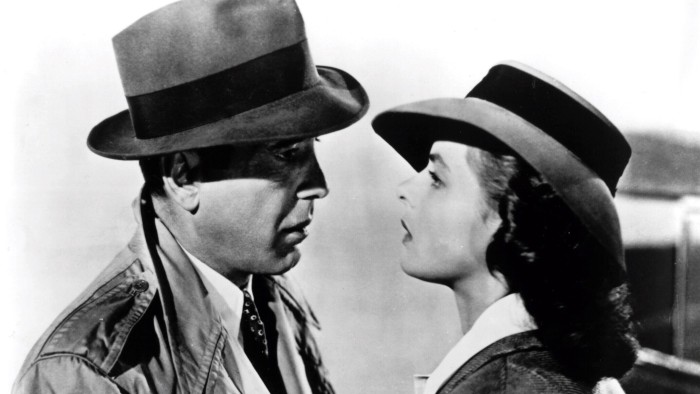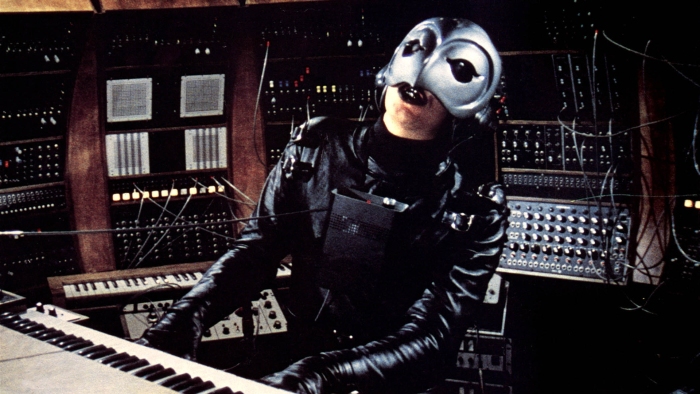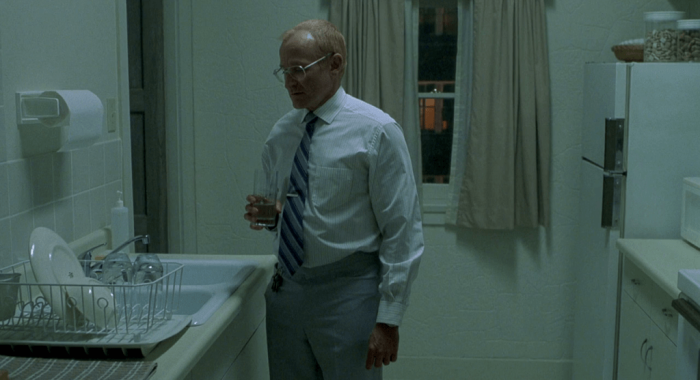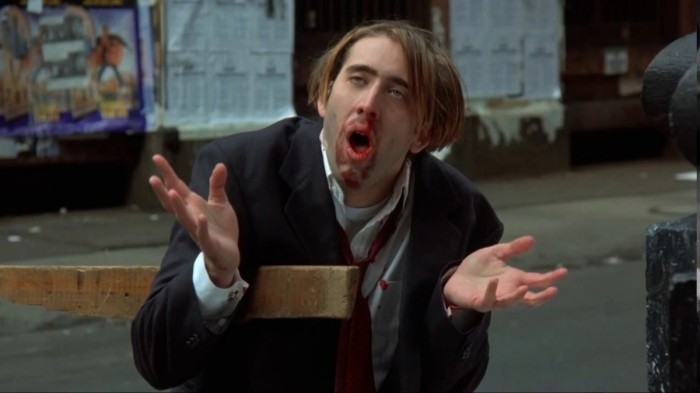The halcyon days of my blessedly blissful adolescence – the mid-to-late oughties, that is – were pockmarked with family vacations to typically beachy locations, wherein we’d all stay in a coastal property and while away the non-sandy hours of the evening by imbibing in the most intoxicating elixir of solid golden oldie cinema. During these muggy but undeniably pleasant nights, the older and therefore more worldly of the bunch would introduce my generation to such timeless hits as The Godfather, Some Like it Hot, Dr. Strangelove, The Sting, and Casablanca, to name a few. Then, after a disastrous viewing of the 1971 neo-noir thriller Klute – which in spite of its critical acclaim doesn’t seem to have aged well – we took what my neighbor would probably describe as a left turn into silver-screen madness. What followed was a tour down memory lane – a tour whose guide was my father – and that lane led to such ignominious destinations as Freebie and the Bean, countless Nicolas Cage B-reels (I actually discussed one of these, which we watched last year, here), and even ten or so minutes of Thankskilling. Given that my absence from the internet last week was due to another round of family vacation, I’m here to report on the three movies we watched in our week of travel together, and before I run them down, let me just say that the left turn into madness does not seem to have been rectified.

The golden years of vacation movie-ing, or as my little brother put it: “Why do these all have to be in black and white?”
Phantom of the Paradise – Not even sure where to begin with this one, but the bone I’ll throw it is that it’s certainly unique, and in a way that’s not altogether unentertaining. Phantom – which according to IMDb is Nicolas Cage’s favorite Brian De Palma movie (have you seen the first Mission: Impossible, Nic? Or even Carrie?) – begins with the pedal to the floor, unfolding exposition at a breakneck pace that I frankly thought impossible, and features a soundtrack that I have to admit is occasionally catchy, but at most other times is downright odd. Among the tunes bestowed upon us are “Goodbye Eddie, Goodbye” – seemingly a pastiche in the style of Frankie Valli and the Four Seasons, and the relatively tame opener of the film, delivered by The Juicy Fruits – “Upholstery,” by the Beach Boys, I mean, the Beach Bums, and “Life at Last,” the climactic ditty belted by the glam rock artist known only as Beef. These songs are wrapped in a modernized and at times unintelligible reimagination of The Phantom of the Opera that’s bitingly satirical of the music industry throughout and yet also manages to garner itself an Academy Award nomination for Best Original Song Score and Adaptation in the process. As for the cast, which features songwriter Paul Williams and – bafflingly – an introductory voice cameo by The Twilight Zone narrator Rod Serling, all I really have to report is that they’re there. Past this point, I’m not really sure what more there is to say about the wholly bizarre experience that this movie is, other than that it has a Rotten Tomatoes score that I think is too high and makes an amount of sense that I think is too low.

What falling backwards into a record press will apparently do to you.
One Hour Photo – Inexplicably a longtime staple in my family’s vacation movie repertoire, thanks largely to one vocal and ardent supporter, this is a film that I’ve seen enough times over the years to probably recite from end to end. Directed by Mark Romanek – who it seems based on his IMDb profile is mostly known for his work on music videos – and headlined by Robin Williams, who delivers a hauntingly odd and severely against-type performance as troubled photo tech Sy Parrish, One Hour Photo is far less gonzo than Phantom, and in fact is a thoughtfully-shot psychological drama, but nonetheless contains a few setpieces and seemingly errant scenes that may leave you laughing even if you feel you shouldn’t, simply because the entire movie is soaked in awkward juice and is never wrung out. Perhaps because it came out in 2002, or perhaps due to its wholly singular nature, it’s a bit of a challenge to place this film as the critical and commercial success that it ultimately was while watching it unreel, but it’s worth a watch regardless of that fact, if only to see Williams as he truly has never been seen before (and sadly, will never be seen again). Also, at one point he has a daydream about breaking into someone’s house and pooping in their bathroom, and if that’s not relatable I just don’t know what is.

Sending him some good thoughts today.
Vampire’s Kiss – Wow. This movie – a Nicolas Cage vehicle about a philandering literary agent who believes himself to be a bloodsucker after a sexual encounter with a vampiress – is a wild ride from start to finish. It’s no wonder that Kiss – which came out in 1988, well before Cage had experienced the meat of his Hollywood success with Leaving Las Vegas, Con Air, The Rock, Face/Off, etc. – has spawned countless memes and the now-infamous “alphabet scene” which finds him at what has to be his absolute Cagiest, given that while watching the premise unravel before my eyes the dominant question running through my mind was “how in the world did this script get past the secretaries of whichever Tinseltown bigwigs greenlit this thing?” My second most dominant question – a far more compelling one, and one that essentially traced a throughline from start to finish – amounted to the often-traveled Nicolas Cage practice of trying to discern which scenes were actually performed as written and which ones could be clearly identified as Cage throwing the script on the ground, unzipping his fly, and peeing all over it. For one, I can’t imagine that Peter Loew’s accent – a fake British one maybe? – was in the original draft, especially since it seems to drift in and out of the dialogue depending on who our beloved protagonist is speaking to (reportedly, Cage employed this because he thought his character would want to make himself seem smart when talking to certain people). I’ll leave the rest of this film’s many joys for you, the reader, to discover on your own, but suffice it to say, if you enjoy the continued and past antics of one of my favorite actors of all time, then you’re sure to enjoy this.

In this scene, Nicolas Cage is explaining to his therapist (literally a brick wall) how he killed a person in a club by biting them. He’s also holding a stake that he had previously tried to stab himself with.
What movies – good or bad – do you associate with family vacations? Let me know in the comments!